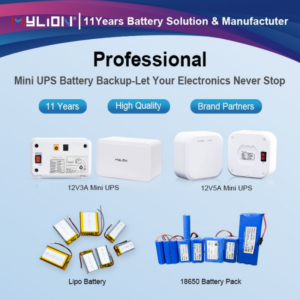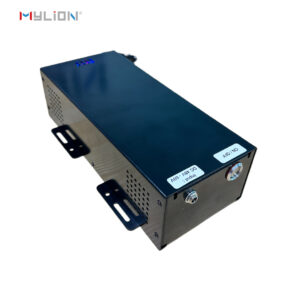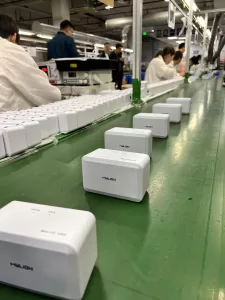
With the rapid development of modern aviation technology, drones, as an innovative aircraft, have been widely used in many fields such as agriculture, logistics, photography, etc. Their performance and efficiency depend largely on their core component – batteries. The Batterie is the “heart” of the drone and an important factor affecting its performance and reliability. Drone batteries not only directly affect flight time and control capabilities, but also the safety and service life of the equipment. With the advancement of technology, various types of batteries continue to emerge to meet the growing market demand.
Whether you are a hobbyist or professional operator, choosing the suitable drone battery is critical to ensuring flight safety and performance.
What are the types of drone batteries?
There are many types of drone batteries on the market now. Different types of batteries not only affect flight performance, but also flight time and safety. Having a basic understanding of batteries can also help us choose batteries better.
- Lithium polymer battery (LiPo): The most common drone battery. It is lightweight and has high energy density, making it suitable for high-performance drones.
There are many advantages of drone lipo batteries. The first is high energy density, which means that more energy can be stored in the same volume or weight, which is very important for the endurance of drones.
The second is lightweight. Compared with other types of batteries (such as nickel-metal hydride batteries or lead-acid batteries), LiPo-Akkus are lighter, which helps to reduce the total weight of drones and improve flight performance.
In addition, lipo batteries can be customized and manufactured into different shapes and sizes to adapt to the design of various drones.
Finally, Drohne lipo batteries have strong discharge capacity and can provide high discharge rates, which are suitable for applications that require instantaneous high power, such as rapid acceleration and climbing.
If you use this battery for the drone, it would be a good choice. However, if used improperly, LiPo batteries can catch fire or explode, so they need to be handled and stored with care.
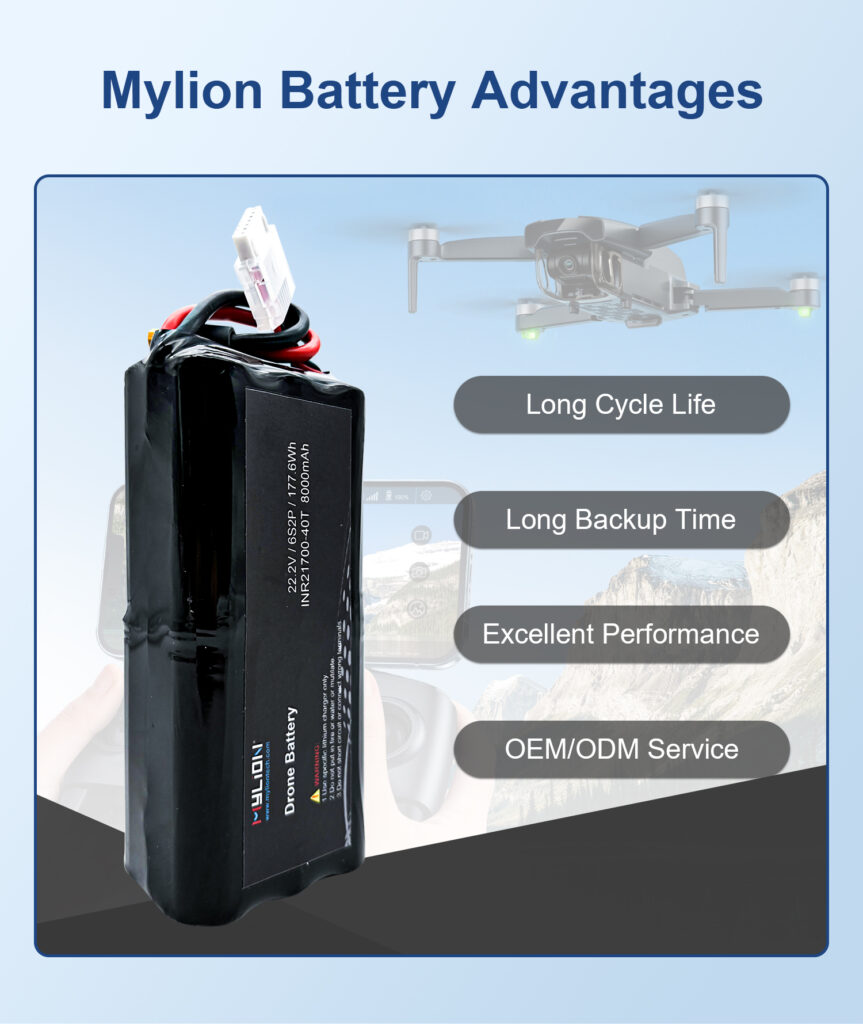
- Lithium ion battery (Li-ion): It’s high energy density, long cycle life, but relatively heavy, usually used in larger or professional drones.
Lithium-ion batteries have a relatively high energy density and can provide a long flight time, making them suitable for drones that need to fly for long periods of time. Compared to LiPo-Akkus, lithium-ion batteries generally have a longer cycle life and can withstand more charge and discharge cycles.
In addition, lithium-ion batteries have a lower self-discharge rate when not in use, which means less power loss during long-term storage. And it can be charged quickly, making them suitable for applications that require fast turnover.
Lithium-ion batteries also have some disadvantages. On the one hand, lithium-ion batteries are usually heavier than LiPo-Akkus, which may affect the flight performance of small drones. On the other hand, the discharge rate of lithium-ion batteries is usually not as good as that of LiPo-Akkus, so they do not perform well in applications that require high power output.
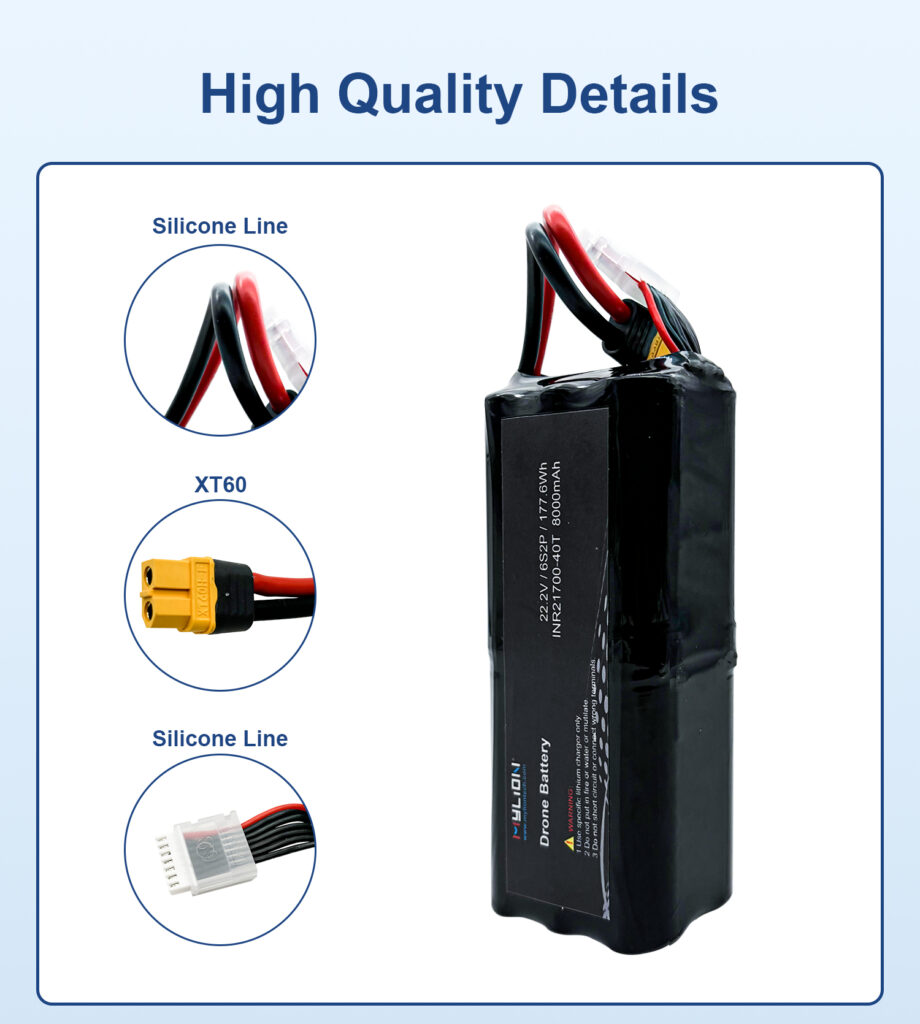
- Nickel metal hydride battery (NiMH): It’s durable, fast charging speed, but low energy density, usually used in lower performance drones.
- Lead acid battery: It’s heavier, mainly used in fixed-wing drones or long-term flight, but low energy density, limited use scenarios.
Compared to other types of drone batteries, lead-acid batteries are less expensive and suitable for projects with limited budgets. Secondly, compared to lithium batteries, lead-acid batteries are safer, safer in overcharge and short circuit situations, and less likely to catch fire.
In general, the most commonly used drone batteries on the market are lipo batteries and lithium-ion batteries. Although nickel-metal hydride batteries and lead-acid batteries have a relatively small market share in drone applications, they still have certain value in some specific needs and designs. Customers can choose different drone batteries according to their needs.
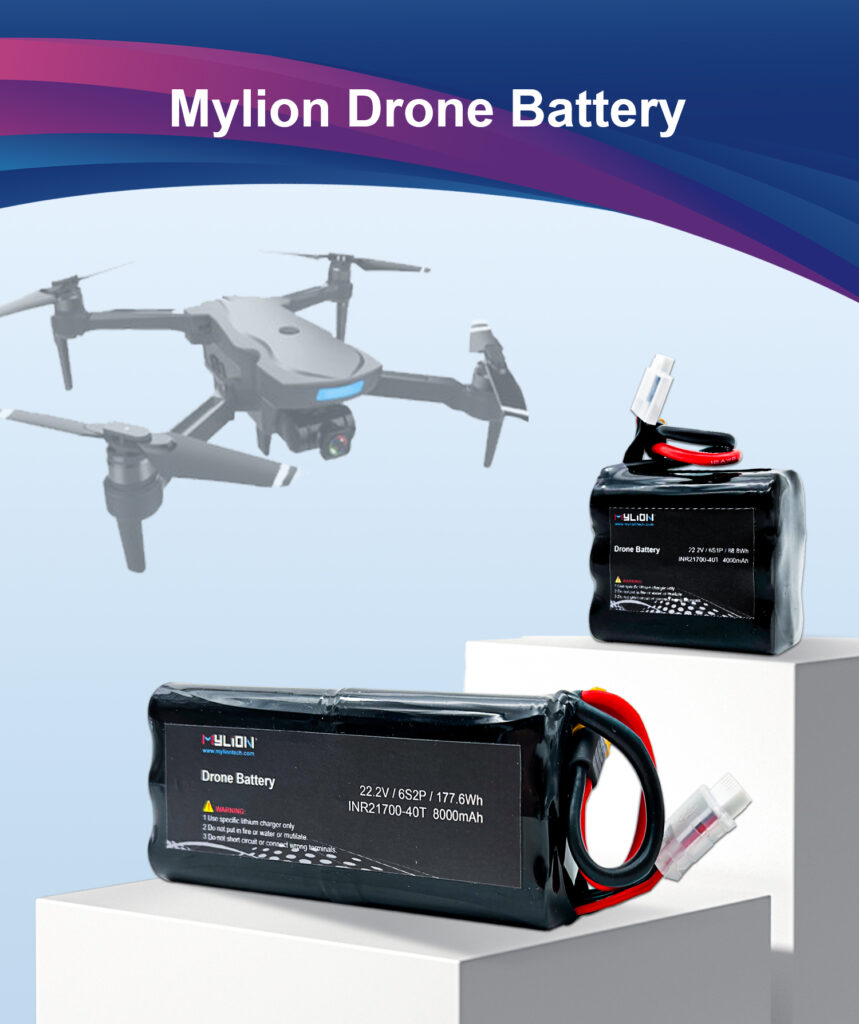
Drone battery capacity and performance
The capacity and performance of drone batteries are key factors affecting flight time, payload capacity and overall efficiency.
When choosing the battery capacity of a drone, we need to understand the requirements.
First, we need to understand the flight needs, consider the use scenarios and mission requirements of the drone, such as aerial photography, mapping or competitions, and determine the required flight time.
Secondly, consider the weight factor. A larger battery capacity usually means a heavier battery, which will affect the flight performance of the drone. Make sure that the selected Batterie capacity does not exceed the maximum load-bearing capacity of the drone. When choosing a Drohne Batterie, you can consider adding some additional capacity to ensure sufficient flight time, while paying attention to controlling it within the allowable weight range. Reasonable matching can ensure flight stability and efficiency.
By combining these factors, you can choose a battery capacity that suits your drone needs and achieve the best balance between flight time and weight.

What else do we need to know when choosing a drone battery?
1. Consider the discharge rate (C value):
The discharge rate indicates the discharge capacity of the Drohne Batterie. The higher the value, the greater the current the battery can support. Make sure the selected C value can meet the power requirements of the drone.
2. Check compatibility:
Make sure the selected Batterie is compatible with the drone model. Check the recommended battery specifications in the drone manual.
- Pay attention to charging and maintenance:
Choose the right charger and follow safe charging and storage methods to extend the battery life.

The future of drone batteries: technological innovation and sustainable development
As drones are widely used in various industries, their dependence on high-performance batteries has become increasingly obvious. The battery not only determines the flight time of the drone, but also affects its overall performance and safety. Looking to the future, drone battery technology is facing unprecedented opportunities and challenges.
- Advances in charging technology
Innovation in charging technology cannot be ignored either. The popularization of fast charging technology will significantly reduce drone downtime and improve work efficiency. In the future, with the development of wireless charging technology, drones may be charged in real time during flight, further improving the convenience and flexibility of operation.
- Sustainable development
Environmental protection is receiving increasing attention, and future drone batteries will pay more attention to sustainable development. Developing biodegradable battery materials can help reduce the environmental impact of battery waste. At the same time, advances in battery recycling technology will also promote the development of a circular economy, reduce resource waste, and promote the reuse of battery materials.
- Market and application prospects
Der drone battery market is experiencing rapid growth. With the continuous advancement of technology, it is expected that applications in agriculture, logistics, monitoring and other fields will become increasingly popular. This will not only improve work efficiency, but also expand the use scenarios of drones, thus promoting the development of related industries.
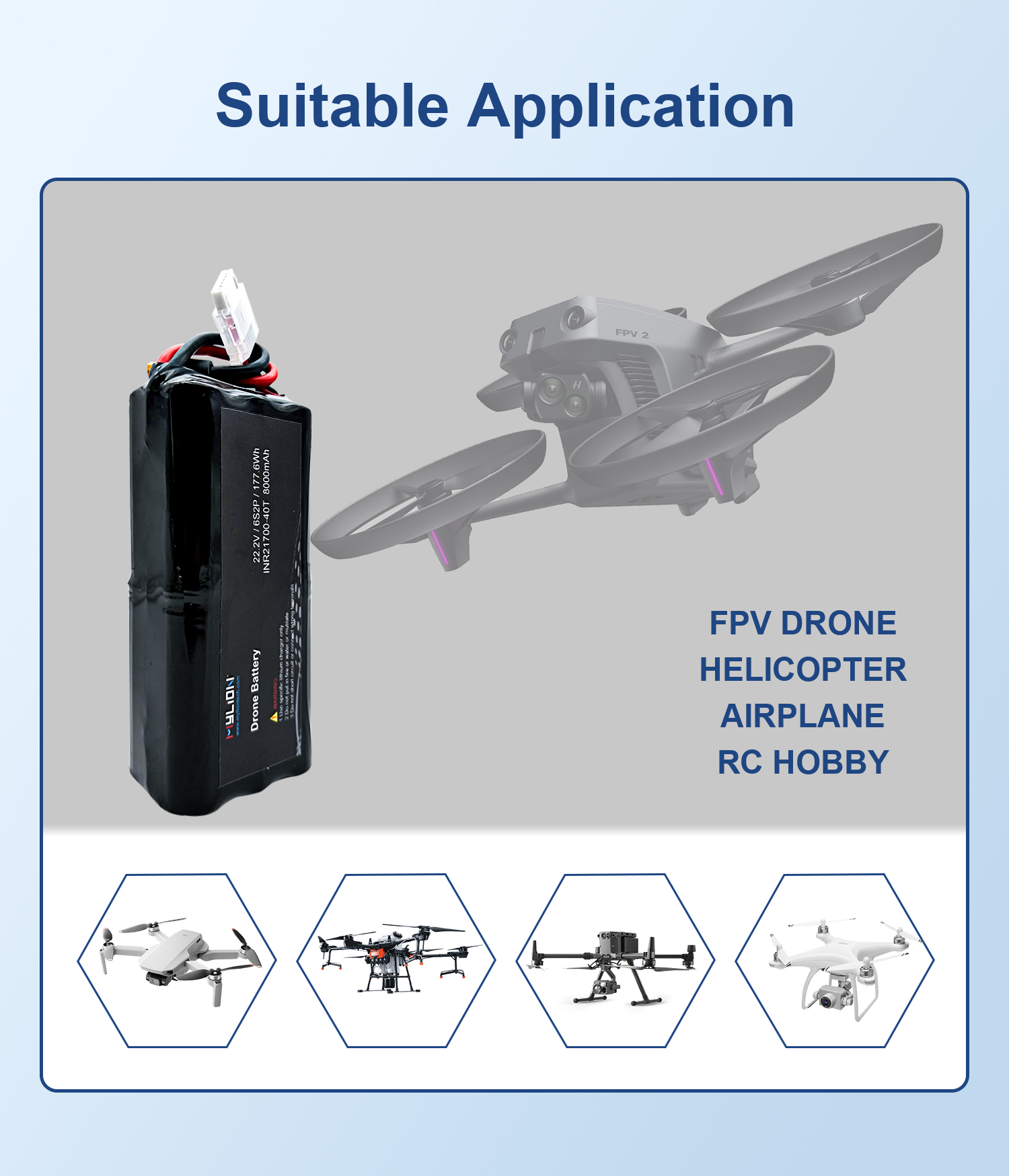
Abschluss
Die Wahl des richtigen drone battery is key to ensuring flight performance and safety. By understanding different battery types, capacities, discharge rates, and compatibility, you can make an informed decision to meet your specific flight needs. At the same time, paying attention to battery charging and maintenance will help extend its life. Whether you are an amateur or a professional operator, finding the right Batterie for you will add more fun and efficiency to every flight. If you need any high quality Drone Battery, welcome to contact Mylion Team!
The future of drone batteries is full of potential, and technological innovation and sustainable development will be the key to industry progress. With the continuous introduction of new materials, charging technologies and environmental protection concepts, drone batteries will usher in a more efficient, safe and sustainable era. This will not only change the way drones operate, but will also promote the booming development of the entire drone industry.



